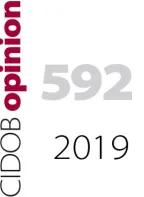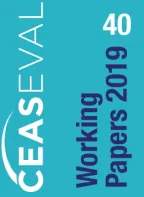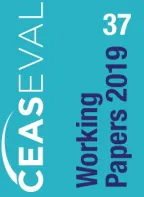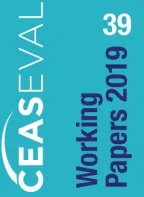CEASEVAL
Evaluation of the Common European Asylum System under Pressure and Recommendations for Further Development
The project carries out a comprehensive evaluation of the Common European Asylum System (CEAS) in terms of its framework and practice. It analyses the harmonisation which goes beyond the formal institutional setting and takes into account the complex relations among the actors engaged from the local and the national levels, to the European level, in order to explain the success and the failure of coordinated action between these varied actors.
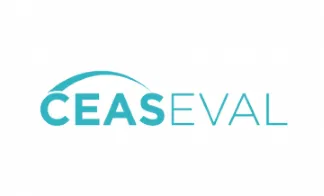
Since 2015, migration towards and within Europe has created a ‘stress’ in the EU asylum and migration systems, challenging the adequacy of the legal design of the Common European Asylum System (CEAS). This impacted the implementation of both the CEAS and national asylum systems in practice and called its further harmonisation into question. The notion of harmonisation is not a fixed term, but rather incorporates varied meanings and practices. While in legal terms, harmonisation has been explained as an approximation process towards minimum standards, harmonisation in political terms rather focuses on policy convergence, of which the harmonisation of legal regimes is only one among many mechanisms of convergence.
Based on an interdisciplinary and multilevel research approach, CEASEVAL will innovatively
- combine multiple disciplines in order to explore different perspectives of the CEAS
- develop a new theoretical framework of multilevel governance of the CEAS, which will be empirically tested across several EU Member States and third countries
- provide a critical evaluation of the CEAS by identifying and analysing discrepancies in the transposition and incorporation of European standards in the area of asylum in domestic legislation, as well as differences in their implementation, and
- elaborate new policies by constructing different alternatives of implementing a common European asylum system. On this basis, CEASEVAL will determine which kind of harmonisation (legislative, implementation, etc.) and solidarity is possible and necessary.
This project has received funding from the European Union’s Horizon 2020 research and innovation programme under grant agreement No. 770037
Partners:
- Technische Universität Chemnitz (TUC)
- University of Amsterdam (UvA)
- University of Luxembourg (UL)
- Forum Internazionale ed Europeo die Richerche sull ‘Immigrazione Associazione / International and European Forum on Migration Research (FIERI)
- University of Sussex (UOS)
- International Centre for Migration Policy Development (ICMPD)
- Barcelona Centre for International Affairs (CIDOB)
- Tarki Social Research Institute / TÁRKI Tarsadalomkutatasi Intezet Zrt (TARKI)
- University of Helsinki / Helsingin Yliopisto (UH)
- European Council on Refugees and Exiles (ECRE)
- New Bulgarian University (NBU)
- Koç University (KU)
- Hellenic Foundation for European And Foreign Policy / Elliniko Idryma Europaikis kai Exoterikis Politikis (ELIAMEP/ELIEEP)
- Stichting VU / Free University of Amsterdam (STICHTING)
Former researchers involved in the project:
- Elena Sánchez-Montijano


